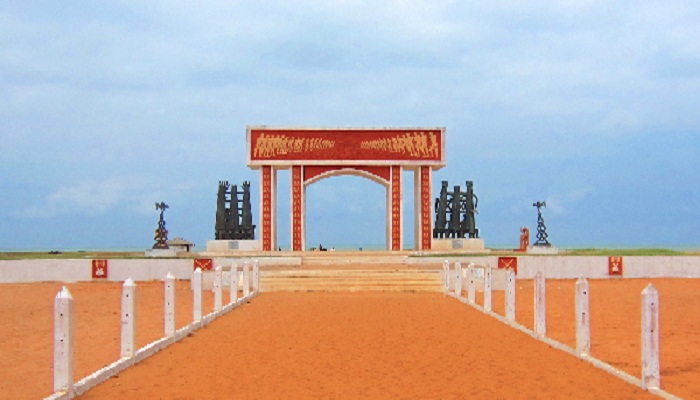Benin Republic has scrapped visa requirements on all Africans travelling there in a bid to grow its tourism industry. It is also putting up its slave-trade era past, on the tourism market.
Benin’s ambassador to Nigeria, Paulette Yekpe says the move is to “transform the tourism industry and make it a sector capable of attracting direct foreign investment.”
She spoke as the Republic marked its 58th independence anniversary, hosted for the first time ever in its embassy building in central Abuja.
“Benin is ready to showcase its amazing and untapped potentials to the world,” Yekpe said, citing beautiful beaches, friendly weather and rich cultural heritage.
On the republic’s list of tourism attractions are the Pendjari Wildlife Park and Parc National du W, considered the richest animal and nature reserve in West Africa.
It also has put Ouidah on its tourist map. The coastal city features prominently in the slave trade and is littered with relics from that era. The Fort of São João Baptista de Ajudá, which was a major slaving port, still exists there, as well as the restored mansion of Brazilian slavers the Maison du Brésil art gallery.
Ouidah’s Route des Esclaves, by which slaves were taken to the beach, has numerous statues and monuments.
Benin is also drawing attention to Ganvie as the biggest lake village in Africa.
It was created in the 16th century on Lake Nokoue, near Cotonou, by the Tofinu people who took to the lake to avoid Fon warriors capturing slaves to sell to European traders.
Nigeria has long historical ties with Benin. Both countries share more than 1,287 kilometres of land border crossed by some five million people daily for many reasons.

 Join Daily Trust WhatsApp Community For Quick Access To News and Happenings Around You.
Join Daily Trust WhatsApp Community For Quick Access To News and Happenings Around You.


